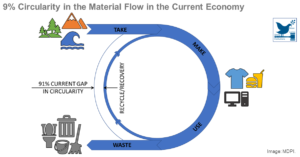 Collaboration between all stakeholders is essential for a successful circular economy. Where stakeholder collaboration is difficult to achieve and there is little cross-sector collaboration, circular innovations are costly and scarcely adapted. To make meaningful progress in circularity, we must have a collaborative ecosystem that engages the stakeholders. Circularity must increase significantly to reduce the global carbon footprint and address other urgent environmental challenges. Cross-sector collaboration and resource pooling mobilizes stakeholders from across the entire value chain to co-create the circular economy solutions. Circularity results from R&D partnerships, the implementation of cross-sector solutions, and strengthening the commercial viability of the solutions.
Collaboration between all stakeholders is essential for a successful circular economy. Where stakeholder collaboration is difficult to achieve and there is little cross-sector collaboration, circular innovations are costly and scarcely adapted. To make meaningful progress in circularity, we must have a collaborative ecosystem that engages the stakeholders. Circularity must increase significantly to reduce the global carbon footprint and address other urgent environmental challenges. Cross-sector collaboration and resource pooling mobilizes stakeholders from across the entire value chain to co-create the circular economy solutions. Circularity results from R&D partnerships, the implementation of cross-sector solutions, and strengthening the commercial viability of the solutions.
Poh, Jacqueline. "3 Ways We Can Collaborate Better for a Circular Economy". World Economic Forum. May 25, 2022. https://www.weforum.org/...
Posted on 22/08/22
Recent Abstracts
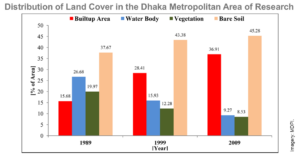
Simulating Land Cover Changes and Their Impacts on Land Surface Temperature in Dhaka, Bangladesh
Despite research that has been conducted elsewhere, little is known, to-date, about land cover dynamics and their impacts on land surface temperature (LST) in fast growing mega cities of developing countries. Landsat satellite images of 1989, 1999, and 2009 of Dhaka Metropolitan (DMP) area were used for analysis. The s ...
Posted on 16/12/24
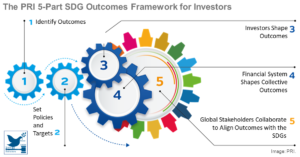
Comparative Study of Key Supply Chain Management Elements in Sustainability Reports
For the evaluation of enterprise value and investment decision-making, firms must demonstrate their commitment to the Sustainable Development Goals (SDGs). For this, several factors are considered, including supply chain management (SCM), human rights, climate change, safety, and environmental risks. This study analy ...
Posted on 03/12/24
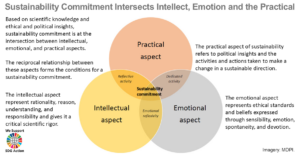
A Didactic Model of Sustainability Commitment
For adoption of 2030 Agenda and the Sustainable Development Goals, education must be reoriented and implemented towards commitment to sustainable development. The environmental and sustainability education (ESE) model suggests that a sound commitment is found at the intersection of the intellectual, emotional, and prac ...
Posted on 29/11/24
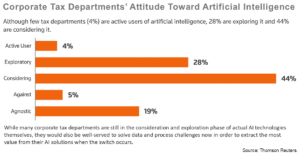
Improving Individual Business Tax Collection In Ho Chi Minh City Via Technological Solutions
This study examines the potential of technological solutions to enhance the efficiency and effectiveness of individual business tax collection in Ho Chi Minh City, focusing on streamlining processes, improving transparency, and reducing tax evasion. The research is based on theories of digital transformation and tax co ...
Posted on 28/11/24

How Vietnam can stay competitive in a changing global trade environment
Vietnam has made tremendous economic progress in the 21st century. Real domestic output per capita has more than tripled since 2000, a rate of growth surpassed only by China in the East Asia and Pacific region. Labor productivity growth per worker was also fastest in the region, albeit from a relatively low starting po ...
Posted on 28/11/24
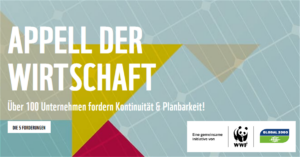
Appell der Wirtschaft an die künftige Bundesregierung
Die zunehmenden Schäden und Kosten der Erderhitzung und der großflächigen Zerstörung von Ökosystemen werden durch europaweite Krisen verstärkt. Daraus ergeben sich massive ökonomische, soziale und ökologische Folgen. Rasches und kontinuierliches Handeln ist eine Voraussetzung für den künftigen Erfolg des Wirtschaftss ...
Posted on 27/11/24
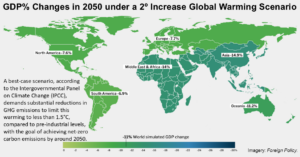
Major Economic and Financial Risks Posed by Climate Change
Failure to transition will generate significant and widespread economic and financial risks. An economic forecast from Swiss Re, one of the world's largest reinsurers, projects a loss in global gross domestic product (GDP) of between 4.2 and 18.1 percentage points by mid-century, depending on different warming scenario ...
Posted on 27/11/24
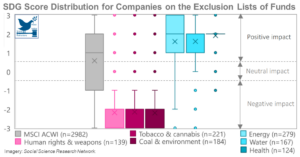
ESG to SDG: Do Sustainable Investing Ratings Align with the Sustainability Preferences of Investors, Regulators, and Scientists?
ESG and SDG cannot be used interchangeably to identify the sustainability of companies and their contribution to social development and the planet, although they are complementary. Where sustainable investors aim to invest in companies that contribute to sustainable development, there is disagreement on how best to me ...
Posted on 26/11/24

COP29 có thể đảm bảo các Doanh nghiệp vừa và nhỏ phát triển mạnh trong quá trình chuyển đổi Net-Zero
Quá trình chuyển đổi sang tương lai công bằng, kiên cường và net zero là không thể nếu không có các doanh nghiệp vừa và nhỏ, được gọi là SMEs. Họ là động lực của nền kinh tế ngày nay và là xương sống của chuỗi cung ứng toàn cầu, chiếm khoảng 90% tổng số doanh nghiệp và khoảng 70% việc làm trên toàn thế giới. Các doanh ...
Posted on 23/11/24
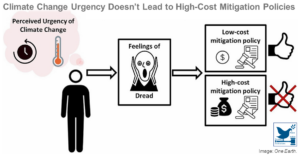
Fighting Climate Change: Cheaper than ‘Business as Usual’ and Better for the Economy
The oft-repeated and rarely challenged view that energy solutions to address climate change are expensive and uneconomical has long thwarted public support for even the most sensible measures – despite the evidence that the damage caused by climate change is far more costly. Those who oppose climate action point to th ...
Posted on 20/11/24
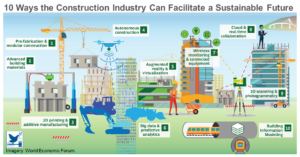
The Critical Role of the Construction Industry in Achieving the Sustainable Development Goals (SDGs): Delivering Projects for the Common Good
In 2015, the United Nations adopted the 2030 agenda for Sustainable Development, which set out 17 Sustainable Development Goals (SDGs), 169 targets and 231 unique indicators as a significant initiative towards global socioeconomic sustainability. Governments commonly use construction as the principal means for the pol ...
Posted on 18/11/24
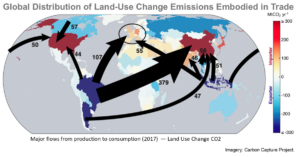
Global Carbon Budget 2024
The latest Global Carbon Budget 2024 report, published in the journal Earth System Science Data, shows that global CO2 emissions from fossil fuels will reach a record level in 2024. Caused by fossil fuels from combustion engines of all kinds and agriculture, the global carbon budget increased by 0.8 percent compared t ...
Posted on 13/11/24
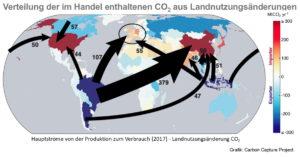
Das Global Carbon Budget 2024
Der jüngste Bericht „Global Carbon Budget 2024“, der in dem Fachjournal Earth System Science Data erschienen ist, zeigt, dass die weltweiten CO₂-Emissionen aus fossilen Brennstoffen im 2024 ein Rekordniveau erreichen werden. Verursacht durch fossile Brennstoffe aus Verbrennungsmotoren aller Art und der Landwirtschaft, ...
Posted on 13/11/24
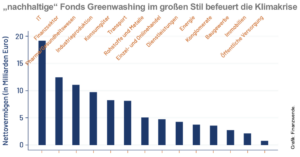
Greenwashing und gerichtliches Strafrecht
Greenwashing-Verurteilungen können zu hohen Geldstrafen für Banken führen. Unter den üblichen Verdächtigen wird die Deutsche Bank-Tochter DWS des Greenwashings im Zusammenhang mit „grünen“ Investitionen beschuldigt, während den meisten Banken vorgeworfen werden kann, dass sie keine angemessene Due-Diligence-Prüfung du ...
Posted on 12/11/24
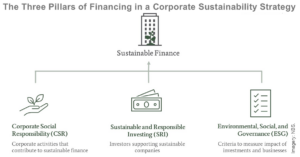
Financing Circularity: Demystifying Finance for Circular Economies
Circular economy strategies can be achieved using such financial instruments as green bonds, green loans, sustainability-linked loans and circular leasing. Sustainability-linked finance calls for innovative business models and financing that integrates circularity in discrete development projects and for general corpo ...
Posted on 12/11/24

